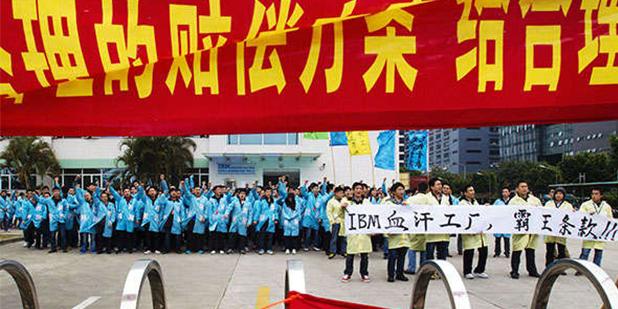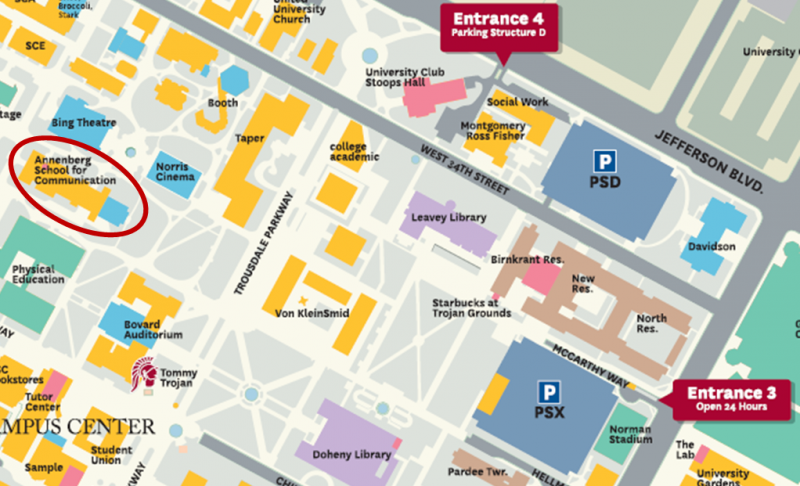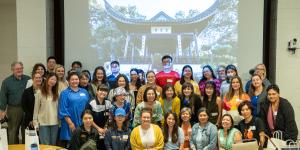On September 29, 2024, the USC U.S.-China Institute hosted a workshop at the Huntington’s Chinese garden, offering K-12 educators hands-on insights into using the garden as a teaching tool. With expert presentations, a guided tour, and new resources, the event explored how Chinese gardens' rich history and cultural significance can be integrated into classrooms. Interested in learning more? Click below for details on the workshop and upcoming programs for educators.
Resistance, Repression, Responsiveness: Workers and Change in China
The USC U.S.-China Institute presents a discussion with Manfred Elfstrom on the growing wave of labor unrest in China, the state's response, and the the long-term implications for both activists and the government.
Where

Watch a video of the presentation.
China is experiencing a growing wave of labor unrest. What kind of political impact—if any—is this conflict in the "workshop of the world" having? Drawing on a unique dataset of strikes and protests by Chinese workers, as well as regional case studies grounded in extensive interviews, Manfred Elfstrom will explain how grassroots resistance is pushing the state to paradoxically increase its capacity for both repression and responsiveness at once, with complex long-term consequences for activists and authorities alike.

Manfred Elfstrom is a Postdoctoral Scholar and Teaching Fellow at the University of Southern California’s School of International Relations. Previously, he was a China Public Policy Postdoctoral Fellow at Harvard University’s Ash Center for Democratic Governance and Innovation. His research interests include China, social movements, labor, nationalism, and authoritarianism. He has a book manuscript under review, tentatively titled “Resistance, Repression, Responsiveness: Workers and Change in China,” which uses an original crowd-sourced and geo-referenced dataset of strikes by Chinese workers, as well as regional case studies grounded in extensive interviews, to show that rising industrial contention is pushing local authorities to paradoxically increase their capacity for both repression and responsiveness. His PhD is from Cornell University’s Department of Government and his graduate research was supported by a Doctoral Dissertation Research Improvement Grant from the National Science Foundation. He has a master’s degree from Columbia University’s School of International and Public Affairs and a BA from Oberlin College. Before reentering academia, he worked in the non-profit world, supporting workers’ rights and improved grassroots governance in China.
Earlier labor-focused presentations:
Christina Chen, Harmonious Society in Action: Labor Unions
Derek Liu, Harmonious Society in Action: Local Cadre Management
Han Dongfang, Labor Activism in China
Xiaoyu Qin, Iron Moon (USCT interview)

Get off at the Expo Park/USC stop for a short walk to campus. Click here for more information.
For maps and directions to campus, visit the University Park Campus Map & Driving Directions page.
McCarthy Way Parking Structure (Formerly Parking Structure X) - $12/day
Enter at the Figueroa Street Entrance at McCarthy Way (Formerly Entrance 3
Featured Articles
Happy Lunar New Year from the USC US-China Institute!
Events
Ying Zhu looks at new developments for Chinese and global streaming services.
David Zweig examines China's talent recruitment efforts, particularly towards those scientists and engineers who left China for further study. U.S. universities, labs and companies have long brought in talent from China. Are such people still welcome?






